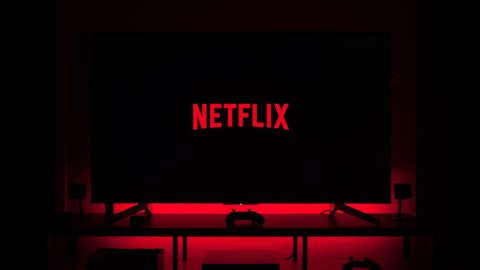Paul Vogel: Yes, it’s a great question. And so — and thanks for bringing it up. Of the 36% growth, about a third of that was social charges and then another 600 basis points or so from severance. So to your point, yes, it was about a big chunk of the OpEx expense growth came from that. I think you’ll see a couple of things. One, if you look at our head count from a year-over-year basis, we’re still up as we go throughout the year, assuming no changes to headcount is in guidance. I’m just using this as sort of an illustrative example, assuming no changes in headcount, those comps just get easier throughout the year as we start to lap the reduction we had a few months ago. And again, Q1 year-over-year is pretty tough, and it gets easier.
So that will help on the leverage side. And then you saw in Q1, we definitely had some leverage on the marketing side where we spent a little bit less than expected, and we’re still able to grow users and subs pretty phenomenally. And as Daniel said, we’re not reading into that too much after one quarter. But it’s obviously something we’re monitoring to see how that goes for the rest of the year.
Bryan Goldberg: Okay. We’ve got a question from Jed Kelly. We’re seeing the stock price benefit from strong MAU growth and improving gross margins. If this continues, does this place Spotify in a favourable position to negotiate a “win-win” outcome with the labels on any incremental price increases?
Daniel Ek: Yes. I don’t know that I think the stock price impacts our negotiations with our content partners. So I don’t think that has any real impact. As I tried to describe before, usually, when we’re negotiating outcomes, it’s very rare that it’s a single issue. We are negotiating with them. It’s usually — it’s a package of different things that we tend to agree on. So one can almost think of them as bilateral treaties, so you kind of have to negotiate them for a while, and there’s a lot of puts and calls into those things. So it’s a whole sort of set of discussions, and there’s a number of different variables that go into them. And again, I think we’re ready to raise prices. I think we have the ability to do that, but it really comes down to those negotiations.
Bryan Goldberg: All right. And our last question today is going to come from Maria Ripps on advertising. Could you discuss and/or rank order what you consider to be the biggest drivers of advertising in 2023? How much of the growth will be a function of an improving macro backdrop, increased advertiser engagement with the emerging formats, greater inventory availability, given recent investments or anything else?
Paul Vogel: Yes, I think there’s a lot in that question. Look, I think there’s a lot to our advertising growth, and so let’s kind of unpack it. So some of it has been — as we talked about, we’ve invested in regionally and growing some of our sales capabilities in Europe and Rest of World. We saw some of the benefit of that in Q1 and there’s sort of an expense ahead of the benefit there. And I think we talked about that throughout 2022. So that’s one, getting some more leverage on some of the investments we made last year just on the people side. Two would be, as we keep talking about, we’re really going to lead with technology innovation here, better measurement, better attribution, better targeting. And those are improvements that we expect to see throughout 2023 and beyond.
So there will be some benefits from that as well. And then as you said, the macro is the big wild card. And so it’s hard to predict it. We think that we continue to build out a platform that will be really strong and will benefit when the macro gets better and something that can still outperform even when the macro remains uncertain.
Bryan Goldberg: All right. Thanks, Maria. And that concludes our Q&A session for today. And now I’m going to turn it back over to Daniel for some closing remarks.
Daniel Ek: All right. Well, thanks, Bryan. In closing, this was a phenomenal quarter with significant outperformance, and I continue to feel really good about what we’re accomplishing. We closed out 2022 on a high note, and this quarter continued that momentum. But more importantly, we are consistently seeing that our long-term approach to innovation is working. And as we move forward with an increased focus on efficiency, we are even better positioned to translate these efforts into a better business performance. So thank you again for joining us. And as usual, feel free to check out our, for the record podcast dropping later today.
Bryan Goldberg: Okay. And that concludes today’s call. A replay will be available on our website and also on the Spotify app under Spotify earnings call replays. Thanks, everyone, for joining.
Follow Spotify Technology S.a. (NYSE:SPOT)
Follow Spotify Technology S.a. (NYSE:SPOT)
Receive real-time insider trading and news alerts





